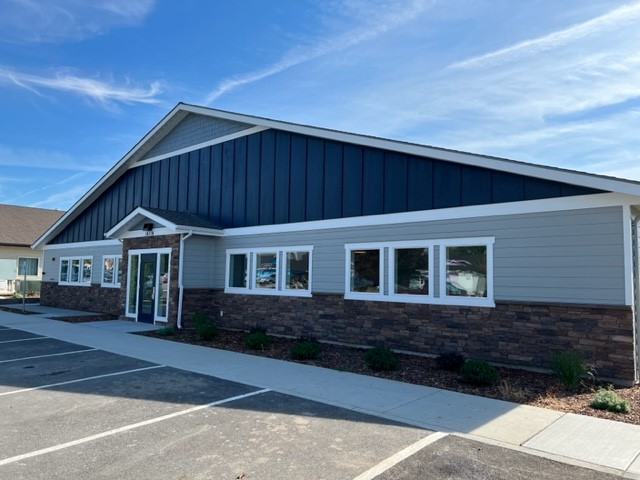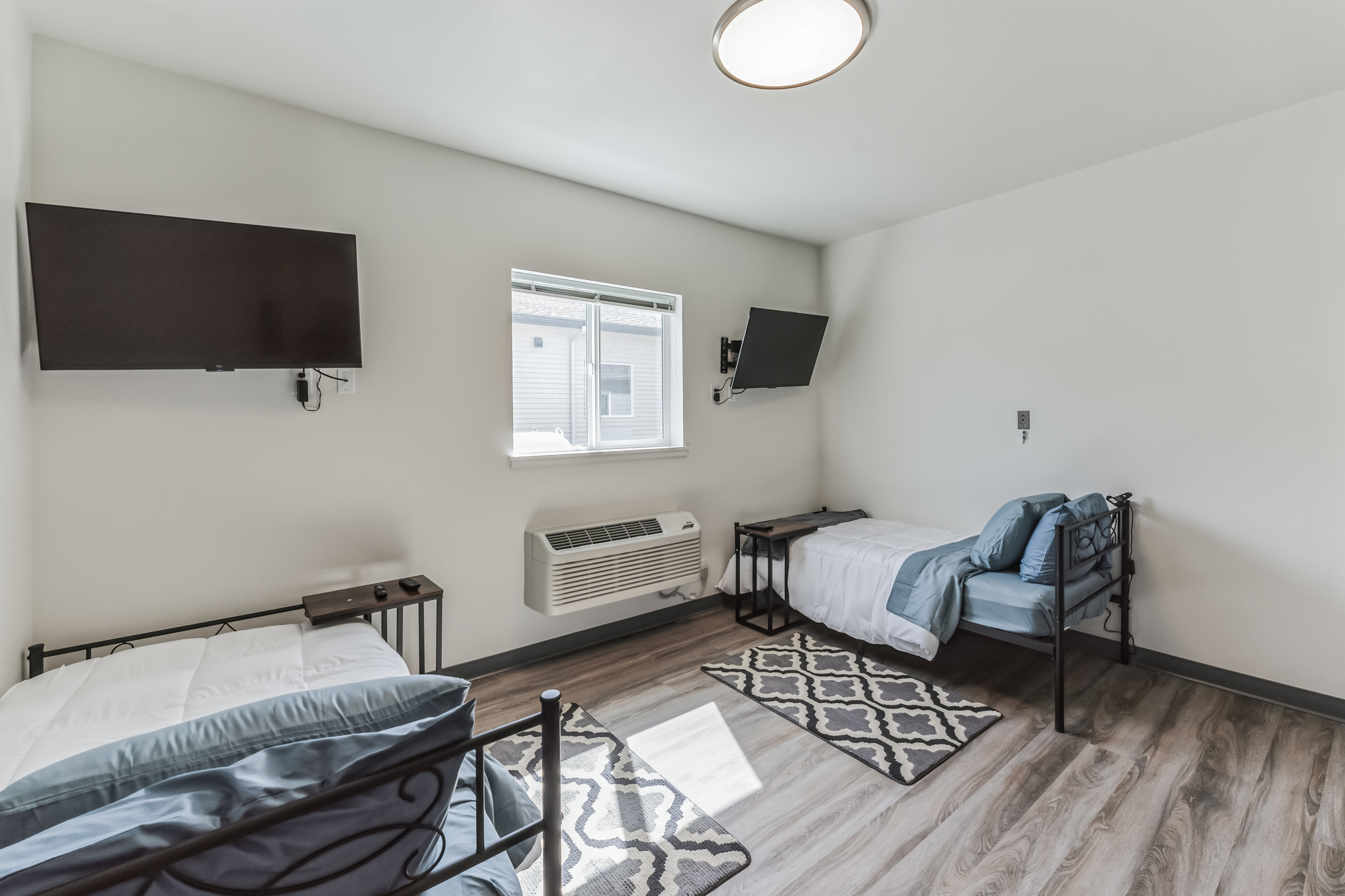
If you’re worried about a woman you love who seems stuck in an emotional whirlwind. I get it, and it’s brave of you to look for answers. Bipolar disorder touches so many lives, and when it shows up in females, it can feel especially tricky because of how it blends with everyday stresses like family life or hormonal shifts.Today, let’s talk straight about bipolar disorder symptoms in females, so you feel less alone and more ready to take that next step toward steadier ground. At We Level Up Washington, we’ve walked this path with countless women, and we’re here to share what we’ve learned in a way that hits home.
Skip To
Table of Contents
What Exactly Is Bipolar Disorder?
Bipolar disorder is a brain condition where people swing between super high energy bursts and deep, heavy lows that make even simple tasks feel impossible. These aren’t just moods; they disrupt work, relationships, and how you see yourself. For women, these swings often hide behind what looks like plain old stress or tiredness, making it harder to spot at first.
Experts say about 2.8% of U.S. adults live with this, and while it hits men and women about the same, females often face it differently. According to the National Institute of Mental Health, these episodes can last days, weeks, or even months if untreated, but catching them early changes everything. Think of it as your brain’s wiring getting a bit tangled, influenced by genes, life events, and yes, those monthly cycles or big life changes like having a baby. If this sounds familiar, know that help isn’t just out there, it’s within reach, and it starts with understanding.

End the Emotional Pain. Get Your Life Back.
Feeling Depressed, Anxious or Struggling with Mental Health Illness? Get Safe Comfortable Mental Health Dual Diagnosis High-Quality Therapy From Counselors That Care. Begin Your Recovery Now.
Hotline: (509) 348-4077

The Main Types of Bipolar Disorder
Bipolar isn’t one-size-fits-all; it comes in flavors that each bring their own challenges. Knowing the type can guide how you or your loved one gets support.
Bipolar I
This one packs a punch with full-blown manic episodes that crank up energy to levels where you might not sleep for days or chase big risks like spending everything in your savings on a whim. Depressive crashes often follow, leaving you wiped out. Women with Bipolar I might see these highs mixed with irritability more than wild joy.
Bipolar II
Here, hypomanic episodes give a milder buzz, like feeling extra chatty and creative without the total chaos. But the real thief is major depression that lingers longer. Bipolar disorder 2 symptoms in females often lean heavier on those lows, which is why many women end up diagnosed later. It’s like the disorder whispers instead of shouts, but it still steals your spark.
Cyclothymic Disorder: The Mild but Steady Waves
This milder form brings ups and downs that aren’t as extreme but stick around for at least two years. You might feel off more days than not, with quick shifts that wear you down over time. For females, these can tie into seasonal changes, making winters feel extra gray.
Other types exist too, like unspecified bipolar, where symptoms don’t fit neatly but still pack a wallop. No matter the label, the goal stays the same: steady you out so life feels manageable again.
Get Help. Get Better. Get Your Life Back.
Searching for Accredited Dual Diagnosis Mental Health Centers Near You?
Even if therapy failed previously, or are in the middle of a difficult crisis, we stand ready to support you. Our trusted behavioral health specialists will not give up on you. When you feel ready or just want someone to speak to about counseling alternatives to change your life call us. Even if we cannot assist you, we will lead you to wherever you can get support. There is no obligation. Call our hotline today.
FREE 24/7 Dual Diagnosis Mental Health Services HotlineSpotting Bipolar Disorder Symptoms in Females
Women experience bipolar symptoms in women in ways that can mimic other stuff, like PMS or burnout from juggling work and home. Hormones play a big role, ramping up episodes around periods, pregnancy, or menopause. Let’s break down what those look like, so you can say, “Hey, this might be more than I thought.”
Signs During Manic or Hypomanic Episodes
These highs make you feel like you could conquer the world, but they often tip into trouble. Women might channel that energy into nonstop cleaning or planning huge projects, only to crash later.
- You buzz with ideas that race through your head, jumping from one to the next so fast it’s hard to catch your breath or finish a sentence.
- Sleep? Who needs it? You stay up half the night feeling wired, yet oddly sharp the next day until the exhaustion hits.
- Impulses take over, like maxing out a credit card on clothes you’ll never wear or saying yes to every invite, even if it means skipping meals.
- That euphoria bubbles up, making everything hilarious, or flips to snapping at tiny things that wouldn’t usually bother you.
- Talking speeds up, and you might feel everyone’s staring, which amps up the paranoia just a notch.
These don’t always scream mania; for many women, it’s a productive streak that fools everyone, including you, until it unravels.
Clues in Depressive Episodes
The flip side drags you into a fog where joy feels like a distant memory. These hit females harder and longer on average, blending with life’s natural dips to go unnoticed.
- A deep sadness settles in, not tied to any one thing, making you tear up over a spilled coffee or just stare at the wall for hours.
- Things you used to love, like reading or coffee with friends, lose all color; you pull away, even from people who care most.
- Your body rebels too, with appetite swings that lead to gaining or losing weight without trying, or aches that doctors can’t explain.
- Energy vanishes, turning bed into your best friend, while guilt whispers you’re failing everyone around you.
- Dark thoughts creep in, like wondering if things would be better without you; if that’s you right now, reach out, because it’s the illness talking, not the truth.
Mixed Episodes and Rapid Cycling: The Emotional Whirlwind
Imagine revving at high speed while your heart sinks, that’s a mixed episode, common in females. You pace the room with anxious energy but can’t shake the despair. Rapid cycling means four or more flips a year, turning weeks into an exhausting blur. Track these patterns in a journal to spot triggers like stress or skipped meds.

Comfortable Facilities & Amenities
High-Quality Mental Health Services & Behaviroal Health Substance Abuse Treatment
Rehab Centers TourRenowned Mental Health Centers. Serene Private Facilities. Inpatient Rehab Programs Vary.
Mental Health Helpline: (509) 348-4077Proven recovery success experience, backed by a Team w/ History of:
15+
Years of Unified Experience
100s
5-Star Reviews Across Our Centers
10K
Recovery Success Stories Across Our Network
- Low Patient to Therapist Ratio
- Comprehensive Dual-Diagnosis Treatment
- Complimentary Family & Alumni Programs
- Coaching, Recovery & Development Events
- Comfortable Onsite Medical Detox Center
How a Person with Bipolar Thinks: Inside the Mind
Ever wonder what it is like inside during these swings? How a person with bipolar thinks shifts like flipping a channel. In highs, your brain fires grand plans, like starting a business overnight, convinced nothing can stop you, even as doubts flicker underneath. Everything connects in brilliant ways, but focus scatters like leaves in wind.
Why Symptoms Show Up Differently in Women
Life as a woman throws curveballs that amp up bipolar’s volume. Hormones during your cycle, after birth, or heading into menopause can spark episodes, making moods swing wilder. Social stuff piles on too, like the pressure to be the rock for family while ignoring your own cracks. Women seek help more for the lows, so docs sometimes miss the full picture and tag it as straight depression.
Getting a Diagnosis: Your First Big Step
Diagnosis starts with opening up to a doctor who listens, maybe your primary care doc or a mental health professional. They will ask about your moods, sleep and family history, so jot notes beforehand. Women often get sidetracked with anxiety labels, so mention any high-energy bursts too. Tools like mood charts or even blood tests rule out other causes.
Patience pays off here; it’s not a quick quiz but a puzzle we solve together. Once clear, that label lifts shame and unlocks real help.

Treatment Paths That Work for Women
You don’t have to white-knuckle through this alone; treatments fit like a glove when personalized. Meds like mood stabilizers even out the swings, while therapy teaches tools to ride them out. Lifestyle tweaks, such as steady sleep and walks in fresh air, act as your daily anchor.
At We Level Up, we blend these with group talks where women share war stories, building bonds that heal. Check our dual diagnosis programs if addiction sneaks in too. Success comes from sticking with it, and we’ve seen women bloom into versions of themselves they forgot existed.
Frequently Asked Questions (FAQs)
-
Where in Spokane Valley, Washington, Can You Find Treatment for Bipolar Disorder?
Right here in Spokane Valley, We Level Up Washington offers warm, expert care for bipolar disorder symptoms in females. Our team creates safe spaces with therapy and meds tailored to women.
-
Where in Coeur d’Alene, Idaho, Can You Find Treatment for Bipolar Disorder?
Just a quick drive away, We Level Up Washington in nearby Spokane Valley provides top-notch bipolar treatment for women from Coeur d’Alene. We specialize in mood stability and holistic plans.
-
How Do Hormonal Changes Affect Bipolar Symptoms in Women?
Hormones can intensify swings, like during periods or pregnancy. Tracking cycles with your doctor helps adjust treatments smoothly.
-
What’s the Difference Between Bipolar I and Bipolar II?
Bipolar I brings severe mania that disrupts life; Bipolar II features milder highs but deeper depressions, common in women.
-
Can Bipolar Disorder Improve with Lifestyle Changes?
Yes! Regular exercise, sleep, and stress reducers like meditation often lessen episode frequency alongside professional care.
-
Is Bipolar Disorder Hereditary?
It runs in families, but environment plays a role too. If relatives have it, early screening empowers proactive steps.
-
How Does Bipolar Affect Relationships?
It strains bonds through unpredictability, but open talks and joint therapy strengthen connections over time.
World-class, Accredited, 5-Star Reviewed, Effective Mental Health Dual Diagnosis Programs. Complete Integrated Inpatient Rehab with Free Post Discharge Therapy Planning.
Hotline: (509) 348-4077End the Emotional Pain Rollercoaster. Gain Stability & Happiness Through Recovery Treatment. Start Mental Health Counseling Today. Get Free No-obligation Guidance by Behaviroal Health Specialists Who Understand Mental Health Recovery.
At We Level Up Washington, we’re here as partners, offering compassionate tools to navigate this journey. Reach out today.




